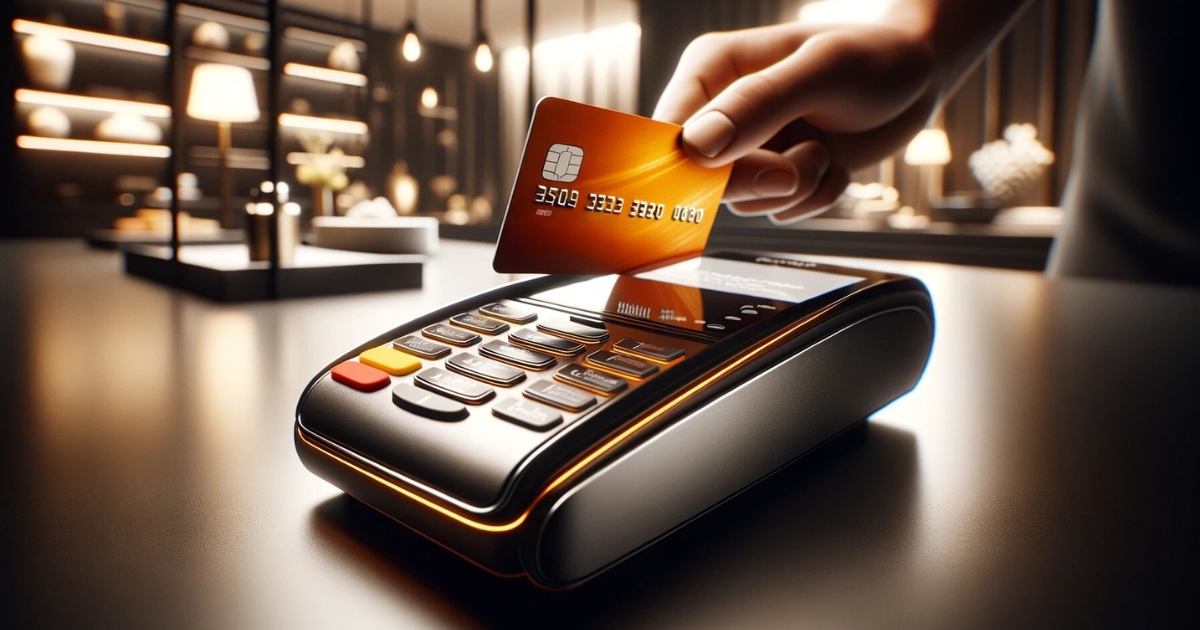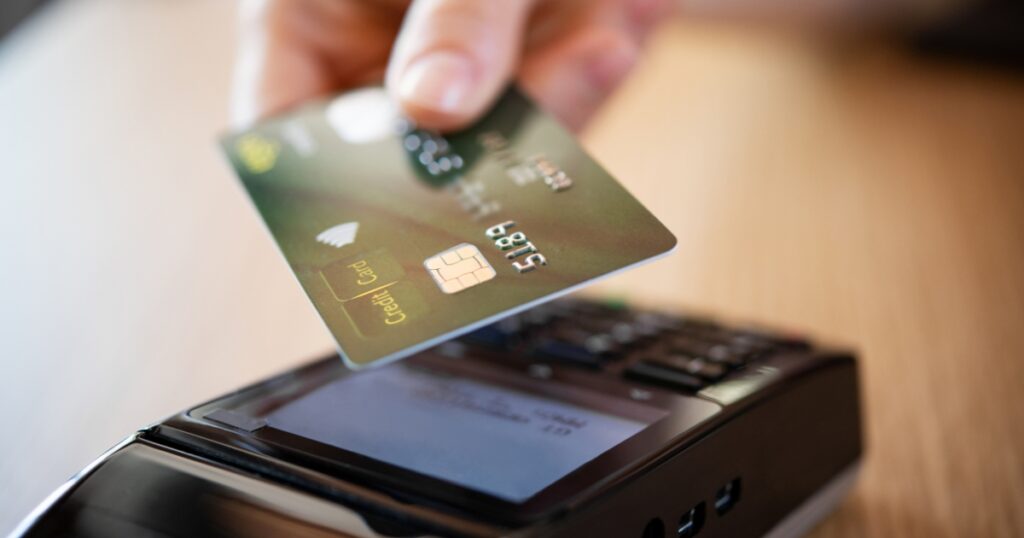
Personal finance experts put in significant effort to steer us clear of credit cards, and they’re right to do so. Many of us mishandle them, ending up in a mountain of debt. However, contrary to popular belief, managing your credit responsibly can tilt the odds in your favor, making credit cards a smarter choice than debit cards and reducing cash transactions. Let’s explore why your trusty credit card leads the pack, along with specific strategies and uses to maximize its benefits.
Key Insights
- While misusing a credit card can lead to debt, when used wisely, it’s a more efficient payment method compared to debit cards or cash.
- Credit cards offer a range of benefits, including welcome bonuses for new users, cashback on spending, rewards points, and frequent-flyer miles.
- They provide top-notch security features against fraud. If your card is misused, report it to your issuer to avoid any charges while they investigate.
- Credit cards offer a grace period, giving you time between making a purchase and settling the payment, unlike the immediate deduction with debit cards or cash.

Benefits of Using Credit Cards
When managed carefully, credit cards offer a lot of benefits, from accruing rewards to improving your credit score, not to mention the advantages of being a cardholder. Here’s an in-depth look at what’s available:
1. Racking Up Rewards
Gathering rewards is a standout benefit of using credit cards. With a plethora of options available, selecting one that suits your needs is crucial. Consider the following choices:
Cash Back Credit Cards: These cards are ideal for those who prefer immediate rewards. They offer cashback on various expenses like groceries, fuel, dining, and entertainment, giving back a portion of your spending as rewards.
Travel Credit Cards: Travel enthusiasts will find these cards invaluable. They allow you to accumulate miles or points on eligible purchases, which can then be exchanged for airline upgrades, accommodations, car rentals, cruises, and more. Some cards even offer flexibility in how you use your miles beyond travel expenses.
Points Credit Cards: These cards reward you with points, which can vary in earning, calculation, and redemption processes. Some function similarly to miles cards, while others operate like cash-back cards. Opting for a points card requires understanding the reward system and any potential restrictions thoroughly.
Each rewards card has its own approval criteria, perks, and reward redemption methods. It’s advisable to research and compare different cards to find one that aligns with your spending habits and lifestyle before applying.
Credit cards come with a range of benefits, from cashback and travel rewards to fraud protection and purchase insurance. Our Standard Bank Credit Cards Review explores how these perks compare to other South African banks, helping you find the best option for your financial needs.
2. Enhancing Your Credit Score Through Prudent Credit Card Use
Owning a credit card provides an excellent opportunity to improve your credit score, a crucial indicator of your creditworthiness. This score plays a significant role when lenders assess your loan applications, influencing their decision to extend credit.
Consider this scenario:
You’re a recent university graduate entering the realm of credit. You opt for a credit card and use it judiciously for modest purchases such as books and stationery. By ensuring timely payments, maintaining a low balance, and refraining from applying for additional cards, you’re laying the groundwork for a strong credit score. This disciplined approach can position you favorably for cards with higher limits and better rewards within a year or so.
Credit card issuers report your credit behavior to credit bureaus, which calculate your credit score based on this data. By adopting responsible credit habits, you’re essentially crafting a credit profile that can open doors to better financial products in the future.
3. Personalized Interest Rates
Among financial terms, ‘interest rate’ is crucial. It refers to the rate banks charge on the credit you use.
The ‘prime interest rate’ is the benchmark rate provided by banks. However, a ‘personalized interest rate’ adjusts according to your risk profile, meaning you could be charged below or above the prime rate based on your financial situation.
4. Extended Warranty Protection
Many credit cards offer extended warranty protection on purchases. This means that beyond the standard warranty provided by the manufacturer, your credit card can extend this coverage, protecting your investments in electronics, appliances, and other eligible items against defects or failures for an additional period.
5. Emergency Assistance at Your Fingertips
In moments of crisis, your credit card becomes a vital resource for immediate aid. For example, if you’re abroad and your wallet is stolen, leaving you without cash or cards, the 24/7 customer service of your credit card can help. By contacting them, you may be granted a temporary credit line and assistance in expediting a replacement card to your location. With the right credit card, you can travel with a sense of security and peace of mind.
While enjoying the perks of your credit card, it’s vital to stay vigilant against fraud. For actionable tips and essential practices on how to avoid identity theft, ensure your financial safety by visiting our detailed guide.
6. Enhanced Security
Using a credit card for transactions significantly reduces the risk of financial loss due to fraud. In contrast to debit cards, where funds are instantly withdrawn from your account if stolen, credit card misuse does not affect your finances. Simply report any fraudulent activity to your credit card provider, and you won’t be liable for any unauthorized transactions as the issue is resolved. Credit card networks such as Visa and Mastercard offer zero liability protection on unauthorized purchases, promoting the use of their cards for added peace of mind.
7. Universal Acceptance
Certain transactions are easier with a credit card. For example, when hiring a car or booking a hotel room, having a credit card simplifies the process. Rental companies and hotels prefer credit card payments as it facilitates billing for any damages incurred to their property. Additionally, while abroad, merchants may be hesitant to accept debit cards, even if issued by a major bank.
While credit cards offer a range of benefits, from cashback rewards to purchase protection, knowing where you can actually use them makes all the difference. If you’re travelling or living in South Africa, check out Where Can You Pay By Credit Card in South Africa to ensure you’re getting the most out of your card at every transaction.
8. Streamlining Budget Management
Using your credit card for daily expenses and monitoring your expenditures can significantly improve your budget management. By tracking your spending and setting a limit within your budgetary constraints, you can effectively utilize your credit card as a budgeting tool. Many banks provide a dashboard detailing spending categories, empowering you to refine your spending habits.
9. Improving Cash Flow
Credit cards serve as a versatile tool for improving cash flow, if you’re a small business owner or have a steady income. They can bridge the gap during lean periods by allowing you to continue making purchases or paying bills, with the option to settle the balance as your financial situation improves. Additionally, rewards earned can help offset some expenses. Some credit cards also offer introductory offers such as 0% interest rates or balance transfer options, providing flexibility in managing high-interest debt.
Credit cards can be a strategic tool in managing and consolidating debt. If you find yourself juggling multiple payments, consider how surviving your debts with debt consolidation can streamline your finances.

Credit Card Usage Statistics in South Africa
This table provides a concise overview of key statistics related to credit card usage in South Africa, focusing on various aspects such as ownership rates, average debt, interest rates, and the prevalence of credit versus debit card use. This overview is vital for understanding the financial habits and challenges associated with credit cards in the region.
| Statistic | Data | Description |
|---|---|---|
| Percentage of Adults with Credit Cards | 15% | This statistic shows the proportion of South African adults who have at least one credit card. |
| Average Credit Card Debt | R15,000 – R20,000 | Indicates the average amount of debt that credit card holders in South Africa carry. |
| Interest Rates Range | 18% – 24% | The typical interest rate range on credit cards in South Africa, impacting cost of borrowing. |
| Credit vs Debit Card Usage | 30% vs 70% | Shows the preference split between credit cards and debit cards among South African consumers. |
| Credit Card Fraud Rates | 3% of cardholders | The percentage of credit card holders who have experienced fraud in a given year. |
| Rewards Program Participation | 50% | Half of the credit card users in South Africa are enrolled in a rewards program. |
Credit cards come with a variety of perks, from cashback to travel insurance. But how do Absa’s credit cards measure up? Our Absa Credit Cards Review takes a deep dive into their benefits to help you decide if they’re the right fit for your financial goals
Comparative Analysis of Credit Cards in South Africa
These cards offer a range of options depending on your financial needs, from basic low-fee cards to premium cards with extensive benefits. When choosing a credit card, consider how the fees, interest rates, and rewards align with your spending habits and financial goals.
| Credit Card | Monthly Fee | Interest-Free Period | Unique Features |
|---|---|---|---|
| Nedbank Gold | R40 ZAR | Up to 55 days | Low credit facility fee, rewards on fuel and swipes |
| FNB Aspire | R99 | Not specified | eBucks rewards, digital platform access, travel insurance |
| Capitec Credit | Not specified | Up to 55 days | High credit limit, cash back, no conversion fees on international transactions |
| African Bank Gold | R68.40 | Up to 60 days | Interest back on on-time payments, comprehensive travel assistance |
Conclusion
Credit cards truly excel when wielded by individuals disciplined enough to consistently settle their monthly bills in full and on time. If you’re adept at responsible credit card use, consider shifting the majority of your transactions to your credit card, reserving your debit card primarily for ATM withdrawals. By doing so, you can take advantage of a combination of rewards, buyer protection, and the convenience of having cash available, placing yourself ahead of those who choose to pay with a debit card, cheque, or cash.
About Arcadia Finance
Secure your loan effortlessly with Arcadia Finance. Benefit from no application fees and select from a choice of 19 reputable lenders, all compliant with the standards set by South Africa’s National Credit Regulator.
Frequently Asked Questions
Interest rates on credit cards represent the cost you incur for borrowing money on the card. If you don’t pay off your entire balance by the due date, interest is charged on the remaining amount. The rate can vary based on the card, your creditworthiness, and the type of transaction (purchases, cash advances, etc.).
Yes, using a credit card responsibly can boost your credit score. This involves making purchases within your budget, paying your bill in full and on time each month, and keeping your credit utilization ratio low. These behaviors demonstrate to lenders that you’re a responsible borrower.
Rewards credit cards offer points, miles, or cash back on your purchases. The benefits can include travel perks, such as free flights and hotel stays, cash back on everyday spending, and other rewards. It’s important to choose a card that aligns with your spending habits to maximize these benefits.
Select a credit card based on your financial situation, spending habits, and the benefits you value most. Consider factors such as the interest rate, annual fee, rewards programs, and additional perks like insurance coverage or access to exclusive events.
If you notice unauthorized transactions, report them to your credit card issuer immediately. Most companies offer zero liability policies for fraudulent charges, meaning you won’t be held responsible for them once reported. The issuer will investigate the matter and usually issue a refund for the disputed amount.
Fast, uncomplicated, and trustworthy loan comparisons
At Arcadia Finance, you can compare loan offers from multiple lenders with no obligation and free of charge. Get a clear overview of your options and choose the best deal for you.
Fill out our form today to easily compare interest rates from 19 banks and find the right loan for you.


